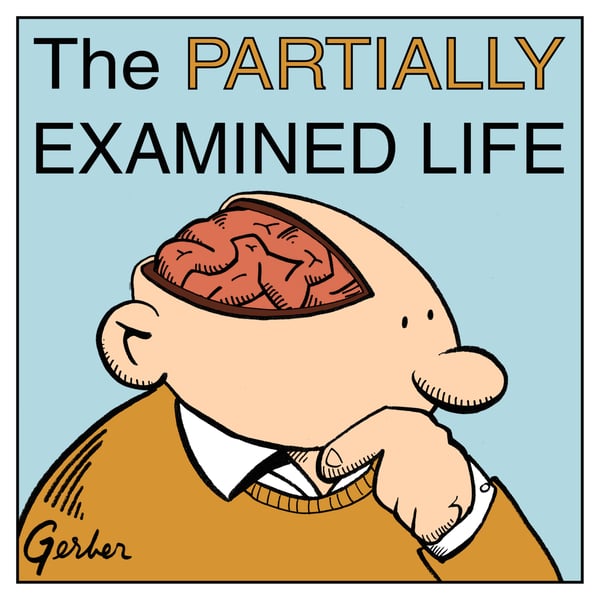Ep. 228: Social Construction of Race (Appiah, Mills) (Part Two)
The Partially Examined Life Philosophy Podcast
Mark Linsenmayer
4.6 • 2.3K Ratings
🗓️ 28 October 2019
⏱️ 46 minutes
🧾️ Download transcript
Summary
Continuing on Kwame Anthony Appiah's "Race, Culture, Identity: Misunderstood Connections" (1994), Charles Mills's "But What Are You Really?, The Metaphysics of Race" (1998), and Neven Sesardic's "Race: A Social Destruction of a Biological Concept" (2010) with guest Coleman Hughes.
Racial classifications vary geographically, therefore race is socially constructed. Given this, can we retain the positive aspects of group-identification without hierarchies and what Appiah calls "imperialism of identity?"
Start with part one or get the full, ad-free Citizen Edition. Please support PEL!
End song: "Tired Skin" by Alejandro Escovedo, as interviewed on Nakedly Examined Music #60.
Transcript
Click on a timestamp to play from that location
| 0:00.0 | The Partial Exam of Life relies on your support to find out how to help in ways that are cheap or even free for you. |
| 0:05.4 | Please visit partialexaminalife.com slash support. |
| 0:17.0 | Hey, this is the Partial Exam of Life episode 228 Part 2. |
| 0:21.1 | We've been talking about the social construction of race about Kwame Anthony Abbey's, |
| 0:25.9 | race culture identity, Charles Mills, but what are you really? |
| 0:29.6 | And Nevin Sassardic's race, a social deconstruction of biological concept, Coleman, can you recap for us? |
| 0:35.7 | I was pointing out that many of the people quickest to disparage rightfully the history of race being a social construct, |
| 0:44.5 | the one-drop rule, the ridiculous and racist ways we've conceptualized race in the past, |
| 0:51.5 | are also eager to preserve those conceptions in many ways, |
| 0:55.9 | which is to say they will assume that the one-drop rule still holds in America and are not eager to change it. |
| 1:04.0 | In the sense of preserving, wanting to preserve something like black identity. |
| 1:08.3 | Since we've talked about the one-drop rule, I've done the 23 and me report on my genetic composition. |
| 1:16.0 | I have 1.1% sub-Saharan African. Apparently that qualifies me, and so I've been answering the question wrong for the last 50 years of life. |
| 1:25.7 | So I'm wondering if there's going to be any influence of all of this ancestry and genetic stuff on popular perceptions. |
| 1:34.8 | It's alluded to in one of the essays that the bifurcated black, white distinction in the United States could be more nuanced, |
| 1:41.6 | like in the Caribbean, where there's three categories, you know, black, white, and somewhere in between. |
| 1:46.8 | That points towards the idea that race is socially constructed, at least in the United States, |
| 1:51.7 | because clearly there's an alternative construction of the concept of race or construction of race that is employed very nearby |
| 1:59.0 | that we don't choose to use except in Louisiana. |
| 2:01.8 | Then we have the example of, oh, there's orientals. |
| 2:05.1 | And you mentioned the research where asked whether or not they identified as Asian Americans. |
| 2:10.8 | And the answer was no, they're Japanese or Chinese or Taiwanese or Korean or what have you. |
... |
Please login to see the full transcript.
Disclaimer: The podcast and artwork embedded on this page are from Mark Linsenmayer, and are the property of its owner and not affiliated with or endorsed by Tapesearch.
Generated transcripts are the property of Mark Linsenmayer and are distributed freely under the Fair Use doctrine. Transcripts generated by Tapesearch are not guaranteed to be accurate.
Copyright © Tapesearch 2025.

